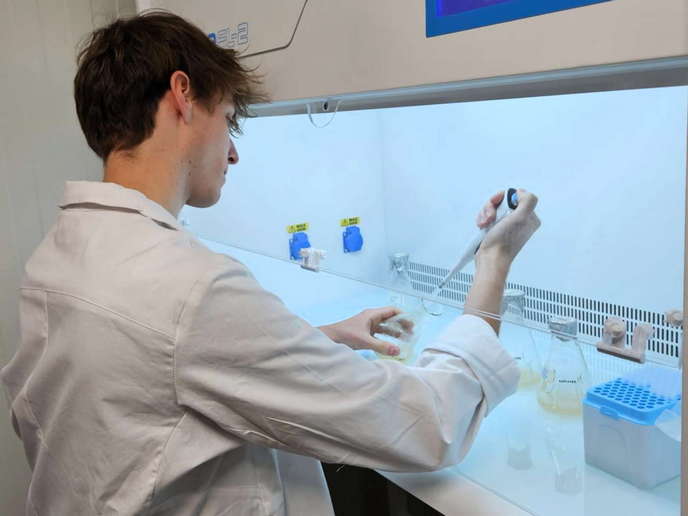Creating a market for crude glycerol
In response to a legislative push towards green initiatives, the global production and consumption of biodiesel is on the rise. Due to its co-production in the transesterification process, this increase in the biofuel production also creates an increase in the generation of crude glycerol. The problem is that, to date, the existing uses for the glycerol derived from the manufacturing of biodiesel are not able to fully utilise the large volume generated worldwide. As a consequence, a vast amount of unused raw glycerol is generated each year, reducing its market value to the point of becoming a ‘waste-stream’ rather than a valuable ‘coproduct’. As glycerol prices fall, more and more companies who chemically produce glycerol are going bankrupt. The EU-funded GRAIL project aimed to integrate and develop existing and new bio-technologies that use glycerol as a competitive biological feedstock. By doing so, the project will also contribute to improving the economics and environmental viability of biodiesel production. ‘The overall concept of the GRAIL project is the use, exploitation and further development of state-of-the-art technology in the field of bio-based products from glycerol, along with the development of new uses for crude glycerol for both high-value platforms and end products,’ says Project Coordinator Carles Estévez. ‘As a result, the project has a strong business focus, with the ultimate goal being the setup of biorefineries in close relationship with the production of biodiesel.’ New uses for glycerol GRAIL builds from knowledge acquired in previous projects. These previous projects and studies, which focused on marketable uses for waste-glycerol, have proposed several isolated approaches. However, their results have failed to integrate a process for resolving the main barriers for the valorisation of this co-product. ‘GRAIL was born from this need to produce a replicable methodology for using economic and scientific arguments to overcome the main scientific, technological and economic barriers to seeing crude glycerol as a suitable feedstock for producing a range of economically valued products,’ says Estévez. The GRAIL project is focused on developing both known and new types of applications and products that go beyond the state of the art using glycerol as the starting material. Reactions that already have been extensively applied to convert glycerol into new molecules, such as oxidations, reductions, dehydrations, etherifications, esterifications, etc., are being replaced by bio-transformations. The end goal is to develop a set of scalable and cost-effective technologies for converting waste glycerol from biodiesel production into, for example, propanediol, fatty acid glycerol formal ester, polyhydroxyalkanoates (PHA), hydrogen, ethanol, synthetic coatings, powder coating, resins, biobutanol, and trehalose, among others. To accomplish this, the project has designed an overall strategy based on three main pillars covering the entire value chain. This includes the evaluation of crude glycerol and purification, along with researching how to transform crude glycerol into other high added value products, such as biofuels, green chemicals and food supplements. The project is also looking at industrial feasibility aspects of glycerol-based products, including economic and environmental evaluation. ‘Now as the project comes to a close, we are shifting our focus to taking the results of GRAIL from product development to the industrial site,’ explains Estévez.
Keywords
GRAIL, glycerol, bio-based products, biodiesel







